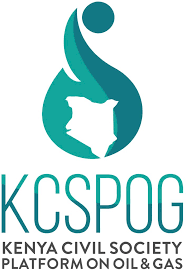Water Sources must be Protected in oil and mineral exploration areas
By Samantha Luseno-Resource Mobilization and Partnership Engagement Officer
Published on Standard Newspaper on 2nd October 2020
In 2012, post discovery of oil in Kenya, famous cartoonist GADO published a cartoon in one of the daily’s with the Mwananchi in Turkana pondering over when the Government of Kenya would find water now that they had found oil. While article 43 of the Constitution of Kenya states that every person shall have the right to clean and safe water in adequate amounts, Turkana County is a historically marginalized region with access to water being among its major challenges. 8 years since the discovery of oil and gas in the county, concerns around access to water continue to prevail. As the exploration phase nears its end, and we approach the Final Investment Decision and the production phase it is crucial that citizens’ concerns around water access are addressed not only in County Integrated Development Plans (CIDPs) but also through holding duty bearers to account.
The initial production phase (otherwise known as the foundation stage) seeks to increase the number of exploration wells converting them to over 300 production wells. The drilling of wells requires water for preparing drilling fluid, cleaning and cooling of drill bits, evacuation of drilled rocks and providing pressure to avoid the collapse of the walls. A significant quantity of water is required for extraction until the point the project ceases to be commercially viable.
Water for production will be tapped out of Turkwel Dam in West Pokot County which has multiple other uses for surrounding communities within the region including: small scale irrigation, livestock consumption, and fishing. As it stands, these communities have not been adequately consulted. The increase in water demand by the project could potentially strain local water resources and even cause conflict in the region which is drought prone. Increase in demand coupled with broader climate change issues could heighten the impact of drought on locals.
Water quality is also likely to be impacted by exploration and production activities. This is because there are a number of seasonal rivers around the oil exploration field. If processing and injection is not done properly at production phase, which could last up to 30 years or post production waste is not well disposed it may pose risks to both underground and surface water. This is expected to directly impact approximately 35 per cent of the population in Turkana County who access water through either dams and lakes or springs and rivers. In the past, Tullow Oil has had disagreements with National Environment Management Authority (NEMA) over the methodology used in getting rid of oil cuttings from their Twiga 1 sight near Lomokamor. For this reason, to avoid contamination of existing sources of water it is important that the government put in place adequate infrastructure for dumping of waste from the project.
A report released by Tullow Oil in June 2019, also detailed that since the inception of the Turkana Oil project the company had invested over Kshs 200 million on 30 boreholes across the county. This has, in part, resulted in a significant improvement in the number of households with access to safe water from 0 in the baseline year 2013/14 to 53 per cent in 2016/17. However, though this has enhanced the access to water in the communities the sustainability of such initiatives has been questioned. Provision of water is the responsibility of the county government and providing it to citizens without building the capacity of local governments to take up the responsibility puts the county at a risk of dependency on oil companies and decreased water access once oil companies exit, or when companies issue Force Majeure notices halting operations.
As citizens and governments, both national and county level, prepares for the production phase of the Turkana Oil Project, Civil Society Organizations like the Friends of Lake Turkana (FoLT) are building a repository of information on the impact of oil and gas exploration on access to water for locals within the county. This comes at an opportune time as the country is currently in the process of reviewing the Environmental Management and Coordination Act (EMCA), 1999, and evidence from the ground can inform provisions adopted in the new act.
Though there are currently provisions on not only undertaking a preliminary assessment but also monitoring environmental impacts of proposed projects, Kenya could benefit from joining initiatives such as Extractives Industry Transparency Initiative (EITI) to enhance implementation of transparency and accountability provisions. As at 2019, member countries of EITI such as Togo, Mali and Mongolia were covering water as an additional sector in environmental monitoring particularly requiring disclosure of water consumed by the extractive industry and describing rules and fees for water usage. In conclusion, capacity building efforts undertaken by oil companies should target not only local communities and businesses but also local governments to enable them sustain ongoing and future corporate social responsibility projects, especially those relating to access to water.
